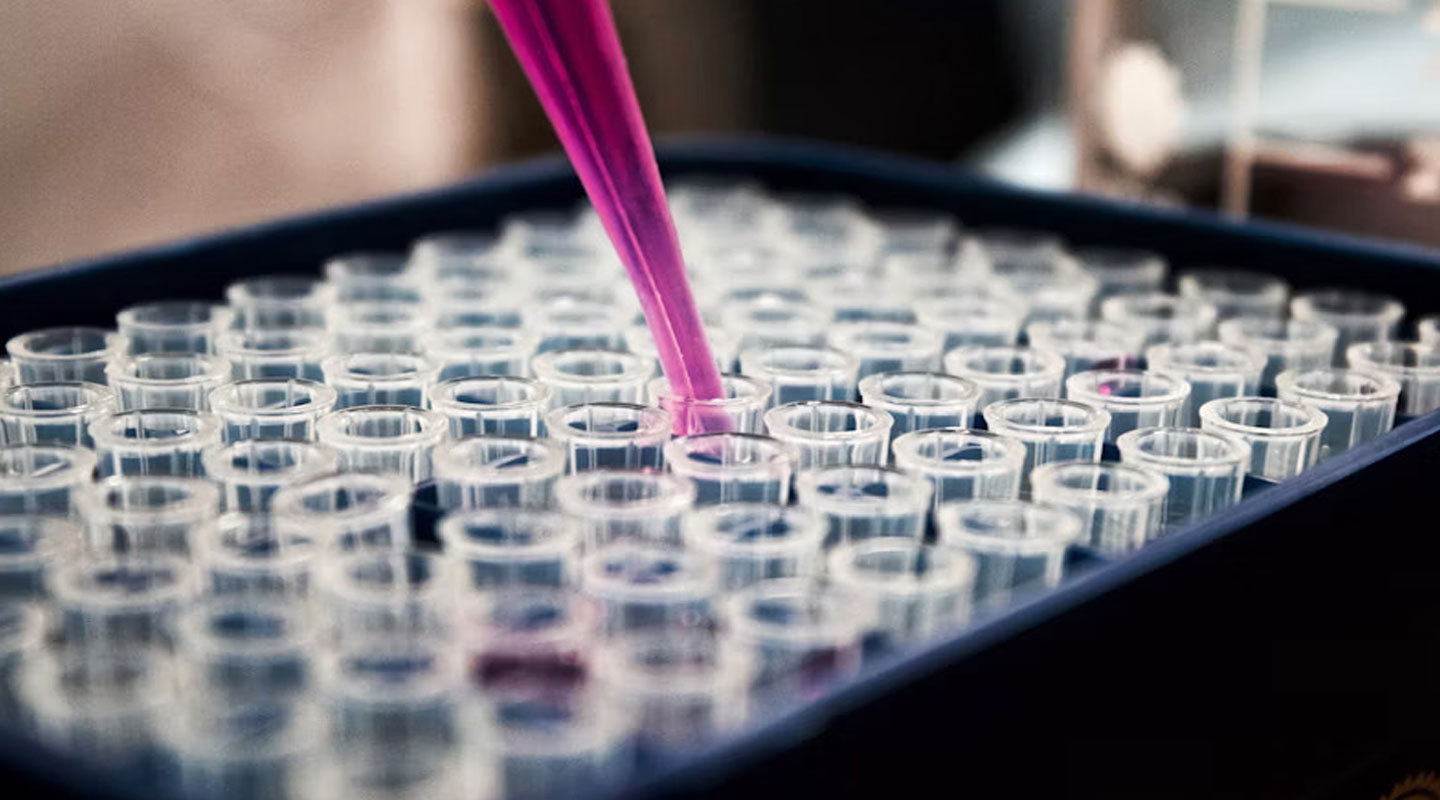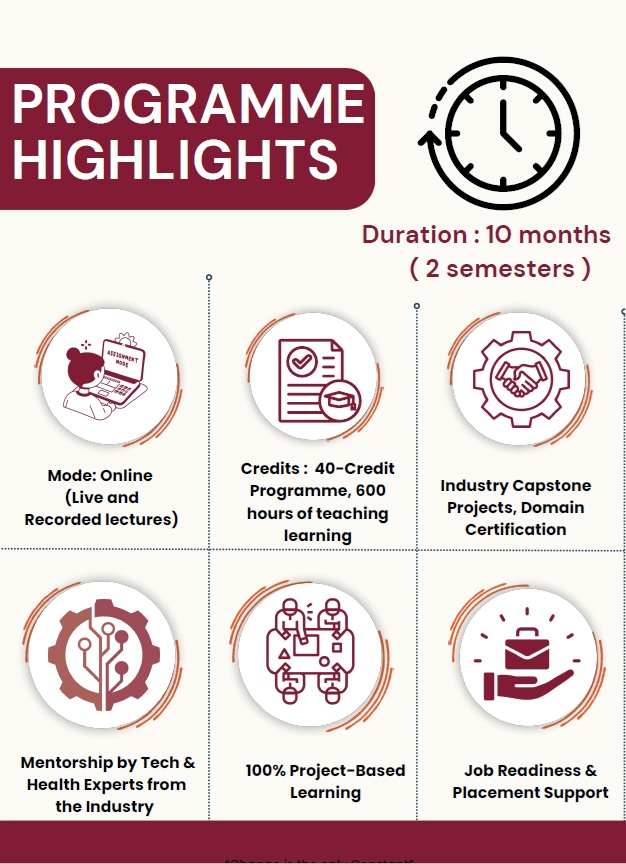About the
programme
https://techmedbuddy.
Programme
Objectives
The primary objectives of the Programme are to:
- Provide interdisciplinary knowledge integrating healthcare and data
- Develop proficiency in analytical tools and programming languages used in biomedical data
- Equip students with skills to handle, analyze, and interpret complex healthcare
- Foster an understanding of ethical and regulatory aspects of digital health
- Prepare learners for careers in research, healthtech, pharma, and clinical
Learning
Outcomes
Upon successful completion of the programme, students will be able to:
- Apply statistical, computational, and machine learning techniques to healthcare
- Analyze omics, clinical, and imaging datasets for biomedical
- Design and implement AI-based solutions for healthcare
- Navigate regulatory frameworks and ethical considerations in health data
- Contribute to the development and deployment of digital health technologies and
Who should opt for the
Programme
Undergraduate Students : who have completed a minimum of 2 Years in Medical Sciences, Dental Sciences, Pharmacy, Nursing, Life Sciences, Biomedical Science, Biotechnology,Bioinformatics, Microbiology, Molecular Biology, or any other life sciences-related discipline or in Computer Science or IT
Postgraduate Students : Who are currently pursuing or having completed a Master’s degree in Medical Sciences, Dental Sciences, Pharmacy, Nursing, Life Sciences, Biomedical Science, Biotechnology, Bioinformatics, Microbiology, Molecular Biology, any other life sciences-related discipline or in Computer Science or IT
Researchers : PhD scholars and postdoctoral fellows seeking interdisciplinary exposure
Professionals: Working individuals in healthcare, pharma, research, or tech aiming to upskill in healthcare data
Download Brochure
Loading PDF viewer...
Career
Pathways
Graduates of the programme will be prepared for diverse roles in the following domains:
- Health Data Analyst / Clinical Data Scientist
- Bioinformatics Specialist
- AI/ML Engineer in Healthcare
- Digital Health Product Developer
- Research Associate in Translational Medicine
- Regulatory & Compliance Analyst
- Personalized Medicine Analyst
They may find employment opportunities in hospitals, pharmaceutical companies, digital health startups, research institutes, public health organizations, and government health departments.
Programme Course/Credit
Structure
| Semester I | |||
| Paper Code |
Course |
Hours per week |
Course Type |
| Foundations of Data Science in Healthcare | 4 | PCC | |
| Biomedical Data Ecosystem | 3 | PCC | |
| Applied Machine Learning for Health | 4 | PCC | |
| NLP & LLM for Clinical Applications | 3 | PEC/ELEC | |
| Biomedical Imaging & Computer Vision | 3 | PEC/ELEC | |
| Omics & Genomics Data Science | 3 | PEC/ELEC | |
| Total | 17 hours per week | ||
| Semester II | |||
| Paper Code |
Course |
Hours per week |
Course Type |
| Multi-Modality in Healthcare Applications | 3 | PCC | |
| Generative AI & Innovation in
HealthTech |
3 | PCC | |
| AI for CADD | 3 | PCC | |
| Responsible AI, Ethics & Policy in
Healthcare |
3 | PCC | |
| Model Development, MLOps & Capstone
Project |
3 | PCC | |
| Biomedical Time Series & Sensor Data | 3 | PEC/ELEC | |
| Project I | 3 | PEC/ELEC | |
| Project II | 3 | PEC/ELEC | |
| Total | 15 hours per week | ||
Course Syllabus
Loading PDF viewer...


